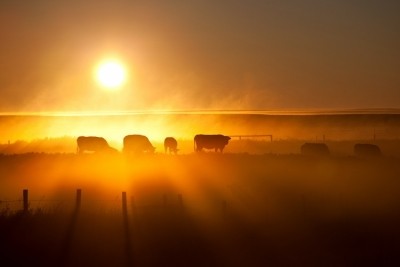To offset or inset? Carbon offset market insists it can provide ‘transparency and integrity’ as food firms look to supply chain solutions

Voluntary carbon credits, or offsets, allow companies to buy carbon credits to balance against their own emissions. A company might, for instance, invest in environmental projects like land restoration or tree planting in other parts of the world to compensate for emissions they can't cut from their own value chains.
While many companies regard offsetting as a useful way to compensate for volumes of carbon that cannot otherwise be eliminated, there are detractors. Critics such as Greenpeace call the use of offsets a 'get out of jail free card'. They believe there’s no time for offsets – trees can take 20 years to grow, after all. There are concerns over the credibility of credits in what is as yet an unregulated market – a whistle-blower famously called Australia’s carbon credit scheme ‘largely a sham’.
There are also fears that offsetting can take pressure off more meaningful work to address emissions produced by businesses and their supply chains. A company that says it is ‘carbon neutral’ will have got there using offsetting, for example. On the other hand, one that has reached 'net zero' will have successfully cut all emissions from its supply and value chains: called insetting. By way of an example of insetting, take Ben & Jerry’s plan to cut emissions on the dairy farms from which it sources its milk by using regenerative agricultural practices and new tech.
Aadith Moorthy, founder of CEO of Boomitra, which operates an international soil carbon credit market, noted the food industry shows a preference for insetting over offsetting.
"What we commonly hear from food companies is they are trying to be bigger on insetting, which is working with the farmers and ranchers in their supply chains to sequester carbon,” he told a media briefing. “Which is a good thing,” he added. “They should work with their farmers because they have some association with them already."
To generate credits, a carbon reduction project needs to abide by a set of criteria certified by independent standard-setting organisation such as Gold Standard or Verified Carbon Standards (Verra). These credits can then be traded over the counter or used towards a company’s climate target.
Moorthy explained to FoodNavigator that food companies looking to remove co2 within their supply chain can use existing carbon credit certification infrastructure to certify their insets, but consumption of the credits would be by the same corporate whose supply chain produced it. Boomitra, for example, works with a few different major food companies on their supply chains for creating such third-party certified insets.
Companies need both offsets and insets at the moment, said Nick Nuttall, Former Communications Director and Spokesperson for the UN Environment Programme and the UN Framework Convention on Climate Change. “You need to reduce your emissions from operations and supply chains. And for those emissions you can't do anything about then you need quality carbon offsets,” he said.
The market is 'changing for the better'
Quality is an important point. The media briefing intended to show how technology is bringing transparency and integrity to carbon markets as they scale. In the fourth quarter of this year the voluntary carbon market officially reached a value of US$1 billion as more and more firms and turn to offsets.
"We know that with high integrity and transparency there's a good change that the voluntary carbon markets can help in addressing climate change, help meet the goals of the Paris Climate Agreement and support countries and communities on the front line with new and stepped up flows of finance,” said Nuttall, adding “technology including digitalisation and AI is already helping to fast forward climate smart cities in respect of buildings and transport systems… We're trying to showcase the creativity and technological knowhow that's now being deployed to try and get the voluntary carbon market to flourish in positive ways."
With regulation a concern, the Integrity Council for the Voluntary Carbon Market (the Integrity Council), an independent governance body, will launch a definitive set of global threshold standards in the third quarter of 2022. The group says new standards will set a global benchmark for carbon credit quality.
But Lars Kroijer, Founder and Managing Director, of AlliedOffsets.com, the leading directory and aggregator of information on the world’s voluntary carbon offset projects, expects confidence in the sector will grow organically as the sector evolves. The establishment of some overriding principles will bring assurance, he said, but the industry isn’t waiting for it to happen.
“I'd leave this space tomorrow if I didn't think that there was potential for us to actually do a lot of good when it comes to carbon,” he said. “This means that when someone buys a ton of carbon, that they are sucking a ton of carbon out of the atmosphere with some belief that that's actually the case.”
Better data is allowing carbon claims to be more accurately verified, he stressed. Concerns about junk credits, which have served to undermine this market, are overblown, the carbon credit proponent continued. “Some of it is lazy journalism. There are 17,000 voluntary carbon projects in the world today. Are some of them fraudulent? Absolutely. But find me 17,000 publicly listed companies without a fraud and I’d call you naïve.
“So there's tremendous growth, there's tremendous availability of information. And yeah, you're always gonna have naysayers, but hopefully they get drowned out or they get better informed."













